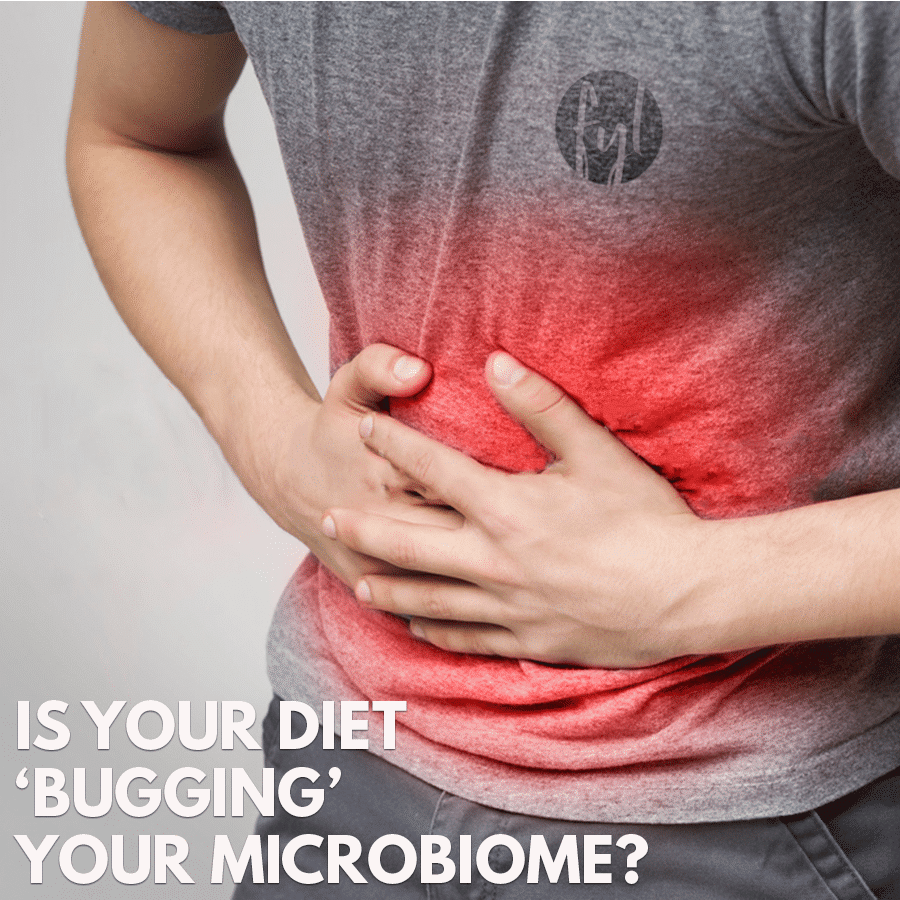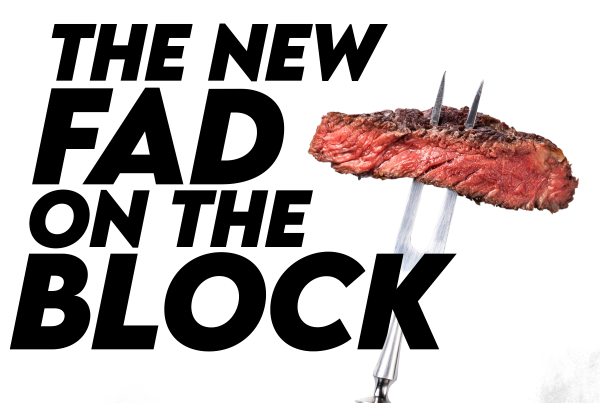Ever wondered what the go is with ‘gut bugs’? Is all the information out there contradicting each other? Is your digestive system crying out for your attention? Yeah, we know it really ‘bugs’ us too. So we have decided to break it down for you, with a focus on how your diet can affect the miniature world of gut bacteria. This is our guide to gut microbiome and overall health.
Dietary Factors Impacting The Gut Microbiome and Overall Health
So, what are we talking about when we discuss ‘gut bugs,’ ‘gut bacteria,’ ‘microbiota’ or the ‘microbiome’?
In the large intestine, towards the bottom of our digestive system lives trillions (yes you read that right!) of microscopic organisms and bacteria, all of which contribute to our own individualised gut microbiome. The DNA present from gut bacteria in the average individual combined is more than 100 times the DNA material of our own! But fear not, most of these organisms play a role in keeping us healthy (our immune system), breaking down foods (our metabolism) and aiding in digestion.
Gut bacteria are responsible for many things, including:
- Breaking down carbohydrates (sugars and fibre) and cholesterol
- Building B vitamins and vitamin K for our bodies to use
- Building different proteins (from amino acids) for our body to use in tissue and muscle growth and repair
- Making short-chain fatty acids which are important to nourish the gut lining and help to reduce chronic inflammation within the body
The types of food and beverages we consume can have a positive or negative affect on our gut bacteria and in turn, our overall health.
Gut Bacteria Friends
There are ways to positively impact our gut bacteria. Though, what exactly are the gut-friendly products and what foods do we need to regularly consume?
This can include the consumption of things like probiotics, prebiotics, fibre, fermentable foods and a diet which includes a wide variety of foods from the 5 core food groups (fruit, vegetables, grains and cereals, lean meat and alternatives, and dairy). Let’s break it down, though.
Probiotics
Foods that contain living organisms that aid our current microbiome and introduce healthy bacteria to the gut. This includes but is not limited to:
- Yoghurt
- Fermented foods (kefir, sauerkraut, kimchi, miso, tempeh, natto, kombucha)
- Some cheeses (mozzarella, traditional cheddars and gouda)
Prebiotics
These contain fibre and natural sugars and provide food for the gut bacteria population. Prebiotic foods include:
- Garlic
- Onions
- Legumes (lentils, chickpeas, soybeans, black beans, and red kidney beans)
- Fruit (in particular under-ripe banana, watermelon, and apples)
- Grains
- Nuts and seeds
For more information on the difference between prebiotics and probiotics, please visit our blog.
Fibre
While some of the foods in prebiotics are rich in fibre, it is important to understand why fibre is so critical to gut health. Fibre is the main source of food for our gut bacteria. It is also responsible for promoting the movement of food through our gut, which aids with regular and soft bowel motions. Foods that are rich in fibre include
- Vegetables and fruit (especially with the skin left on)
- Wholegrains and cereals
- Nuts and seeds
- Legumes
Balanced Eating from the 5 Core Food Groups
Foods are split into 5 core food groups and discretionary items (“sometimes foods”) based on their nutrient composition. Eating a wide variety of foods from these groups will aid by increasing our gut bacteria diversity. The more diverse our gut bacteria population, the better our overall health is likely to be as a result.
Gut Bacteria Foes
Some foods and beverages that we consume can negatively affect our gut microbiome by reducing the amount of gut bacteria in our digestive tract. This may lead to a disharmony between our good and bad gut bacteria. Foods that have a negative impact on the gut microbiome include items such as:
- Excessive consumption of red meat (no more than 350g per week and ideally lean cuts).
- Food rich in saturated fats and salt such as take-out or fast food. High salt diets have been shown to compromise gut bacteria numbers.
- Excessive consumption of alcohol. It is recommended to try keep under 0-4 standard drinks each day.
- A diet that is overly restrictive and does not include a wide variety of foods.
Take Home Message?
- Gut bacteria helps us to break down some foods and produce many different substances which our body uses to keep us healthy and functioning properly.
- Eating a diet that has a wide variety of foods from the five core food groups is the best place to start in achieving a healthy and versatile gut microbiome.
- Go have a look in your cupboard and see what ‘gut bacteria friends’ you can eat or prepare today to give your gut bacteria (and yourself) that positive boost.
For more information on how your diet can effect your gut microbiome and overall health, don’t be afraid to get in contact with one of our incredible Dietitians!








Found your post interesting to read,your article is so convincing that I never stop myself to say something about it.Thanks for the detailed post .Hope you will keep on sharing articles.